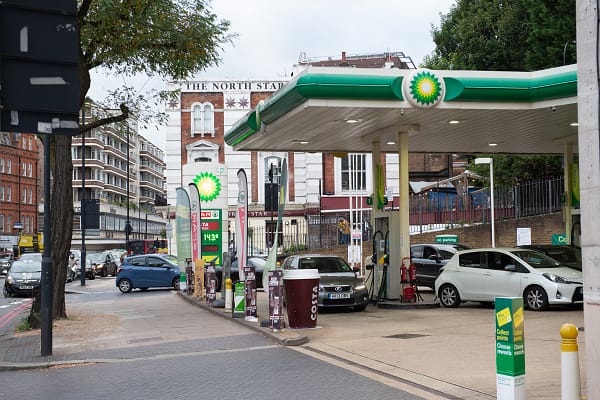International Women’s Day special
VITAL STATISTICS
● Company: Feedr
● What it does: Feedr has created a new way to bring delicious, healthy and nutritious food to companies, events, and employees through its virtual catering business
● Founded: Summer 2016, London
● Founder/s: Riya Grover (CEO) and Lyz Swanton (COO)
● Size of team: 10
● Your name and role: Riya Grover, CEO
How did the concept of ‘Feedr’ develop and how does it work?
Feedr was born out of our own difficulties in getting healthy, delicious food in the office, despite London’s food revolution. During my time in the US, I saw lots of innovation around workplace food that was not replicated in the UK. After my return, Lyz and I combined our business expertise and passion for food to start Feedr – connecting London’s best food suppliers with the corporate food market.
With the aim of helping people eat healthier at work, Feedr combines a unique service and a curated platform of 100 of London’s artisan food suppliers — including Gail’s Bakery, Farmstand, Mildreds, Detox Kitchen, Ethos Foods, Raw Press, and more.
A business can choose to place group food orders for meetings or set up a virtual canteen. Feedr’s Cloud Canteen is an online version of the best canteen you can imagine with healthy, exciting meals offered each day. Employees can select their own dishes from a daily rotating menu from Feedr’s artisan vendors.
How is your service model different from other competitors?
We significantly differ from other food services thanks to our unique online platform, which makes it simple for companies to place recurring, large group food orders online and customise their requirements to the needs of their workplace or event. At Feedr we ensure seamless execution and delivery with dietary labelling, menus and perfect eco-friendly packaging.
Our “Cloud Canteen” is also a unique offering in London. It allows individual employees to purchase meals from exciting menus that rotate daily and are constructed from a curated list of 100 artisan food vendors. The cloud canteen makes it easy and affordable for ayone to eat healthy, nutritious food every day at their workplace.
What are the range of local artisan food brands you are currently offering? Any gluten-free, vegan and sugar-free options?
Our vendors are carefully vetted by our team of foodies. If they don’t make it past our picky, diverse set of tasters, they don’t make it onto our menus. We look at a number of factors including how their ingredients are sourced, are they making their food fresh and on-site, whether they’re removing unnecessary additives and refined sugars, and how they can serve all dietary requirements and ensure great packaging and delivery to the workplace.
What was your initial investment?
£550K
How do you make money and who’s bankrolling you?
We raised a £550,000 seed round from high profile angel investors, including Richard Glynn – former CEO of Ladbrokes and founder of Alinsky Partners, Errol Damelin – Wonga Co-founder and investor in Farmdrop, Tide and Cleo, and Anthony Gutman – Co-head of Investment Banking at Goldman Sachs. Our seed investment round helped us to build a great team and a scalable technology platform to drive growth.
To make money, Feedr takes commission on every meal sold through the platform and has impressive unit economics.
What metrics do you look at every day?
Our run rate of meals served per month is our north star metric. We look at several acquisition metrics such as new leads and new sign ups on the platform. We also look at customer ratings and the number of orders each customer places with Feedr (as well as order patterns and behaviour). These order patterns enable us to use to technology to drive a more personalised experience for the end customer. On the operations side, we closely monitor the timing of our deliveries and vendor performance, using those metrics to maintain an excellent standard of meals and service.
Do you use artificial intelligence to carry out this monitoring?
We’re not quite an AI company (yet), but we do use a lot of machine learning and unique algorithms to power predictive technology, which allows us to personalise quotes and menus using technology.
As a food-tech startup, what challenges can you face in the next 5 years?
Maintaining quality and excellent standards on sourcing, nutrition etc will be an important challenge as we scale. Moreover, trends in food shift rapidly (meal preferences, dietaries etc) – it’s up to us to stay on top of them and evolve our product ahead of the curve. Scaling to new cities will also bring challenges as cultural attitudes to food, price points and menu preferences will vary.
I believe Feedr creates ‘cloud canteens’ for London companies that do not have a canteen. So how does this work ?
In the simplest terms, Cloud Canteen is an online version of the best canteen you can imagine. We have rotating menus, selected from two of our healthy vendors each day. You simply place your order by 10:30am, and your meal is delivered to you at lunch time, together with your colleagues’. Once an office signs up, there’s no minimum order, so while we love to encourage people to come together over lunch, there’s no arguing over where to order from or whether everyone wants something that day.
We also provide flexible subsidization models for offices. Meals are the same price as you’d get them directly from the vendor, but they’re delivered straight to your desk, with no delivery fees.
What advice would you give other entrepreneurs trying to start their business and raise investment?
Starting and growing a business has been one of the most fulfilling things I’ve ever done. I would definitely encourage someone with an idea they believe in to pursue it. At the beginning, before investing or raising anything, I would recommend really testing the concept, try to sell the product/service before you have one, survey as many potential customers as possible, be diligent in understanding the market landscape and competition and realistic about what it takes to scale the business. If these things check out, the investment will follow.
As a women entrepreneur in London, what are your thoughts on the recent “TimesUp Campaign”?
It’s great to see strong and influential women fighting systemic sexual harassment, particularly tackling the problem in low-wage service jobs. It’s inexcusable that this is happening and movements like this are so important to close the gap. More broadly I believe we need more female role models in positions of leadership across so many industries and for societies to shift their attitude to working women, especially in many parts of the developing world.
Do you have any expansion plans? What do you believe the key to growing this business?
We have ambitious expansion plans. We are on track to serve over 500,000 meals in 2018 in London and from there plan to expand to other UK and European cities. We are also thinking about new product verticals beyond healthy, fresh meals such as healthy snacks.
For me, there are three key aspects to successfully growing the business. First, building a world class team that can innovate as trends change and can use customer insights to rapidly improve our product. Second, using technology to gather data and automate menu building and recommendations – this is key to being able to scale without scaling our team size significantly. Lastly finding and deploying scalable digital marketing channels to drive growth.
What’s been your biggest mistake so far?
Hiring for skill rather than attitude or cultural fit is a mistake we’ve made. Another has been spending time and res
ource to build product features that we believed customers wanted before really understanding whether this was the case. These are just a couple of examples – there have been many more. Each of these mistakes has taught us something critical and informed the way we do things the next time.
Which London start-up/s are you watching, and why?
Revolut and Tide – love what they’re doing to digitalize banking with excellent product execution and a deep understanding of consumer behaviour.
Farmdrop – bringing fresh, organic produce from farmers directly to consumers. They’ve challenged conventional supply chains and are helping to promote food transparency and sustainable produce.






Leave a Comment